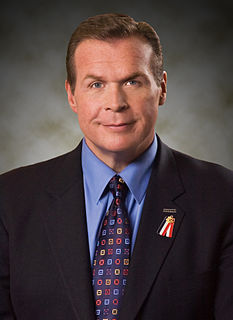A Quote by Shelby Steele
Innocents don't learn from their sins; the chastened are informed by them.
Related Quotes
We are not to look upon our sins as insignificant trifles. On the other hand, we are not to regard them as so terrible that we must despair. Learn to believe that Christ was given, not for picayune and imaginary transgressions, but for mountainous sins; not for one or two, but for all; not for sins that can be discarded, but for sins that are stubbornly ingrained.
The Lord never came to deliver men from the consequences of their sins while yet those sins remained...Yet men, loving their sins and feeling nothing of their dread hatefulness, have, consistent with their low condition, constantly taken this word concerning the Lord to mean that he came to save them from the punishment of their sins.
As by the fires of experience, so by commission of crime you learn real morals. Commit all crimes, familiarize yourself with all sins, take them in rotation (there are only two or three thousand of them), stick to it, commit two or three every day, and by and by you will be proof against them. When you are through you will be proof against all sins and morally perfect. You will be vaccinated against every possible commission of them. This is the only way.
It is hard living down the tempers we are born with. We all begin well, for in our youth there is nothing we are more intolerant of than our own sins writ large in others and we fight them fiercely in ourselves; but we grow old and we see that these our sins are of all sins the really harmless ones to own, nay that they give a charm to any character, and so our struggle with them dies away.
If churches saw their mission in the same way, there is no telling what might happen. What if people were invited to come tell what they already know of God instead of to learn what they are supposed to believe? What if they were blessed for what they are doing in the world instead of chastened for not doing more at church? What if church felt more like a way station than a destination? What if the church’s job were to move people out the door instead of trying to keep them in, by convincing them that God needed them more in the world than in the church?
Unless we realize our sins enough to call them by name, it is hardly worth while to say anything about them at all. When we pray for forgiveness, let us say, "my temper," or "untruthfulness," or "pride," "my selfishness, my cowardice, indolence, jealousy, revenge, impurity." To recognize our sins, we must look them in the face and call them by their right names, however hard. Honesty in confession calls for definiteness in confession.


































